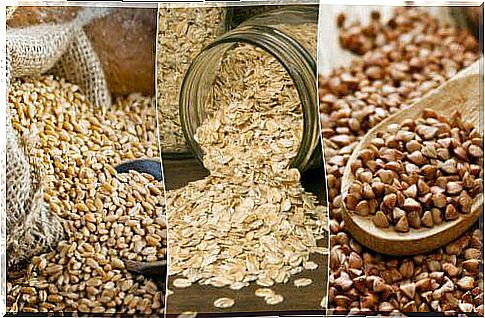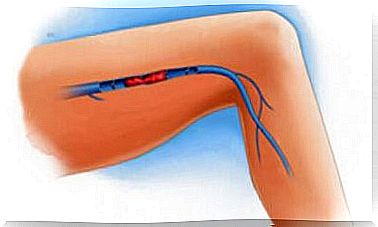6 Must-Have Whole Grains
Consumption of whole grains has been on the rise in recent years. They are an important source of nutrients that benefit the body.

Although many myths have been circulated about their consumption, today whole grains are recognized as fundamental in any healthy diet because they are an important source of fiber and whole carbohydrates.
Thanks to these qualities, they are, among other things, valuable allies in losing weight.
The best part is that there are different varieties of whole grains. All of them can easily be combined with other foods, all of which are delicious. You will therefore no longer be able to do without their benefits. Discover six of them here!
1. Oats, the queen of whole grains
Also called “the queen of whole grains”, oats are a food of high energy value which, because of their nutritional composition, deserves an important place in the regular diet.
- It is notable for its significant contribution in slowly absorbing carbohydrates that help regulate blood glucose levels, facilitating their transformation into sources of energy.
- It contains high amounts of dietary fiber, which helps control bad cholesterol (LDL), digestion and relief from food anxiety.
- It is a source of B complex vitamins, necessary for the proper functioning of the nervous and muscular system.
- It helps improve the rate of metabolism and protects cells from the effects of free radicals.
2. Brown rice
Although it is more common to find white rice on the market, it is essential to know that brown rice is the best alternative to enjoy 100% of the nutritional properties of this food.
- It contains significant amounts of B vitamins, which improve the functioning of the nervous system and the brain.
- It is an important source of magnesium, an essential mineral that is involved in hundreds of biological processes in the body.
- Its natural fiber improves digestion and prolongs satiety.
- It optimizes the absorption of essential nutrients and promotes cardiovascular health.
3. Barley
Barley is the fifth most widely cultivated cereal in the world. Although not suitable for celiacs, it is a low-calorie food that provides important nutrients to the body.
- It contains vitamins B1 and B2, in addition to zinc, magnesium and dietary fiber.
- It improves digestion and reduce the absorption of harmful lipids in the intestine.
- It is one of the best natural remedies for high cholesterol and high triglycerides.
- Barley regulates intestinal transit and promotes the elimination of waste.
- It is recommended as a supplement for weight loss, because it is satiating and energetic.
4. Whole rye
Rye is one of the healthiest whole grains that can be added to the regular diet because it provides a lot of nutrients in exchange for few calories.
- Its significant contribution of fiber promotes the control of high cholesterol, preventing its accumulation in the arteries.
- It helps improve intestinal transit, prevent disorders such as constipation.
- Rye is also recommended for regulating blood sugar levels and reducing the risk of metabolic diseases.
- It contains vitamin E and selenium and is known for its antioxidant action on the body.
- It helps improve mental performance and lowers the risk of nervous and cognitive disorders.
5. Corn
Corn is a traditional food that has been used as a source of energy thanks to its intake of slowly absorbed carbohydrates.
- It is valued for its high contribution of vitamins A, B and E, which protect the nervous, immune and cardiovascular systems.
- Maia contains dietary fiber, necessary for the proper functioning of the intestine.
- Its antioxidants help protect cells from the effects of oxidative stress.
- It helps protect the collagen in the skin, decreasing the appearance of premature signs of aging.
6. Buckwheat cereals
Buckwheat is a food suitable for those with gluten intolerance, as it does not contain this protein.
- It stands out for its supply of amino acids of high biological value, which keep the body active and muscles strong.
- It contains minerals such as magnesium and iron. Both are necessary for good blood health.
- Its low glycemic index helps keep sugar levels stable.
Do you eat whole grains? After realizing their importance to your body, include them regularly in your diet and benefit from their nutrients.









